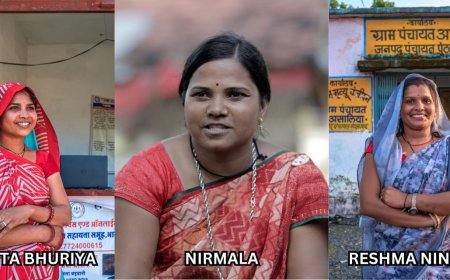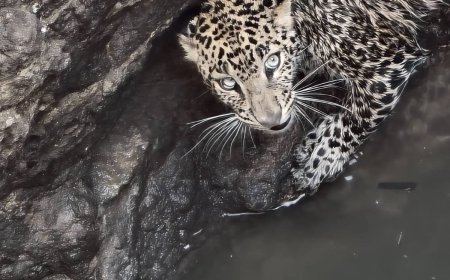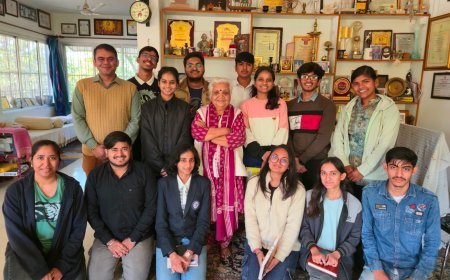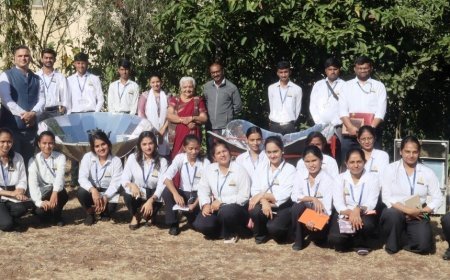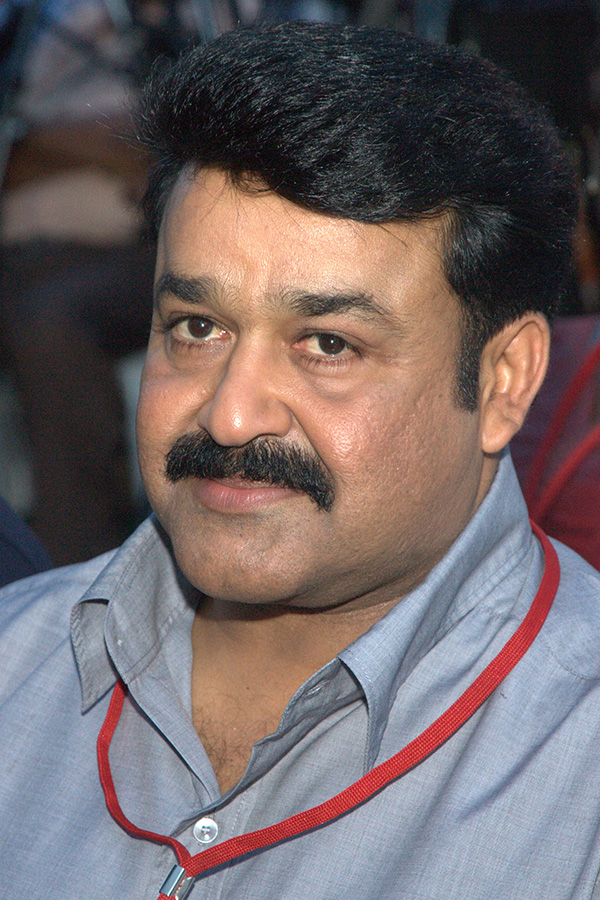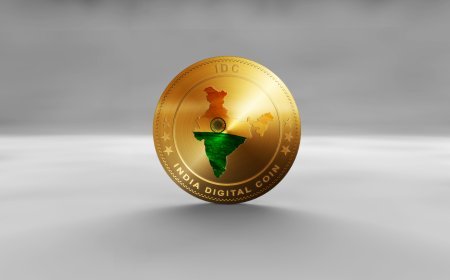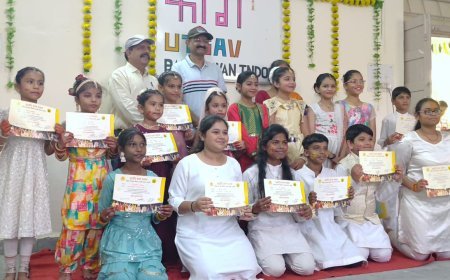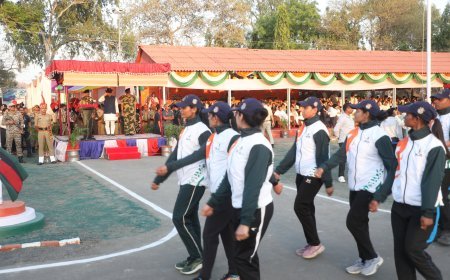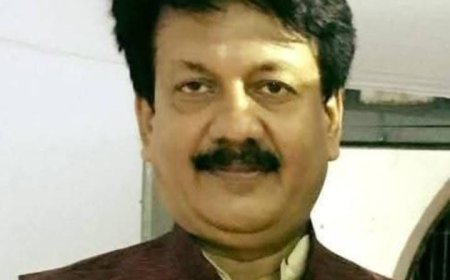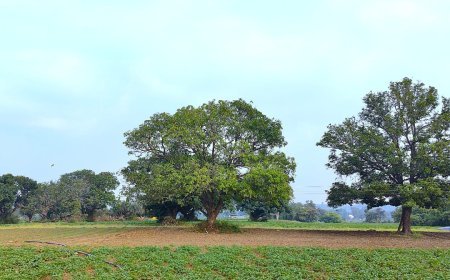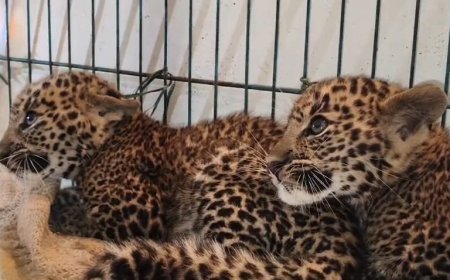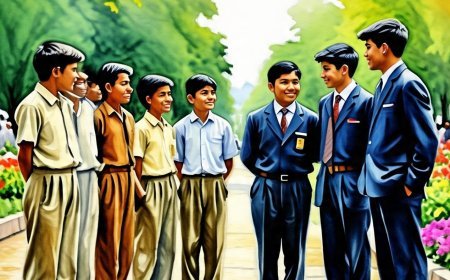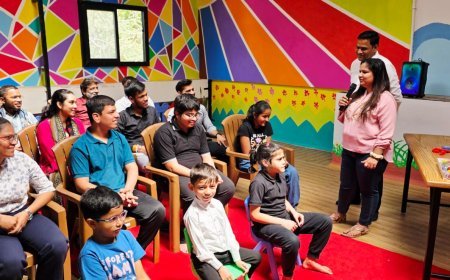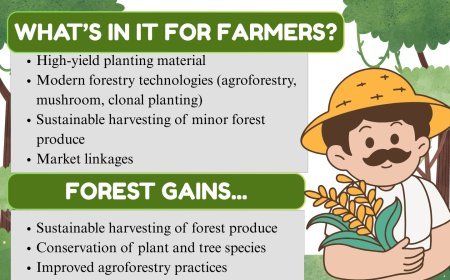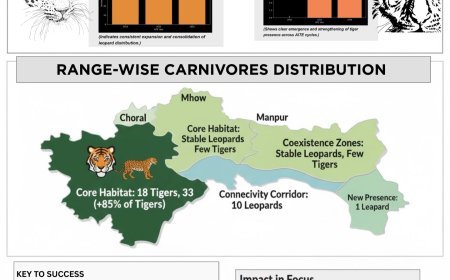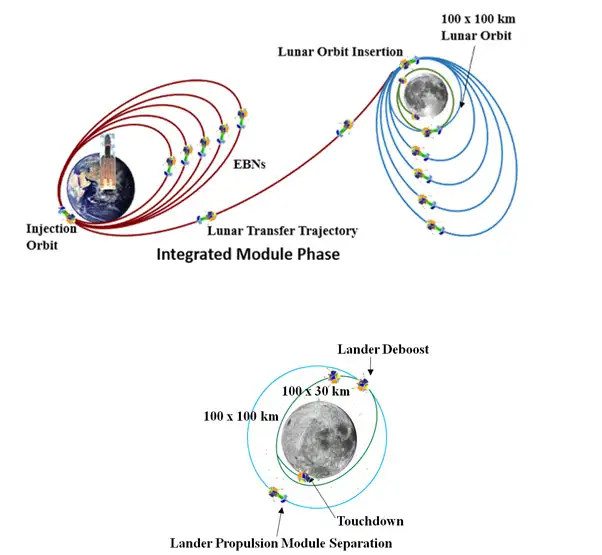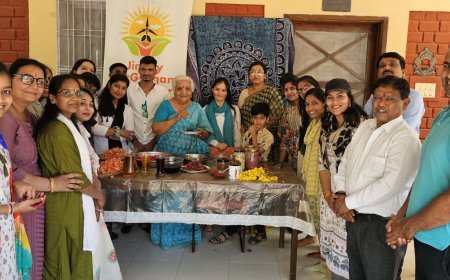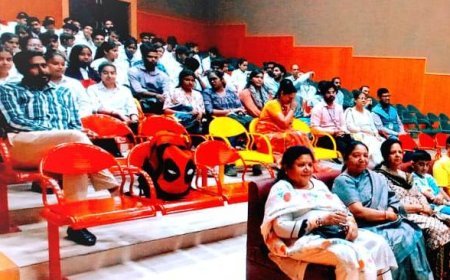Late Jimmy McGilligan Memorial week - Excessive use of photovoltaic panels is not environmentally friendly
During the late Jimmy McGilligan Memorial week for sustainable Development , Dr Janak Palta McGilligan and Ghanshyam Lukhi at Oriental University,

Indore
During the late Jimmy McGilligan Memorial week for sustainable Development at Oriental University, his wife Padmashree Janak Palta McGilligan, speaking on sustainable lifestyle to reduce carbon emissions, said, "Excessive use of photovoltaic panels is not environmentally friendly as these panels are made of silicon. These panels, batteries and inverters have a limited life, where they will be dumped after the date of expiry .? Hence there is urgent need of more and more solar thermal cooking systems. Carbon emissions can be reduced by specially cooking community food, , namkeen clusters/prasad for Temples , Cooking food and steam for hospitals, hostels, schools/anganwadis, because Solar Thermal cooking systems/dishes are completely carbon free.
As Founder Director, Barli Institute in Indore,they built and used the first domestic box cooker/parabolic cookers used by and 500 tribal village girls and larger Sheffler Community Kitchen in 1997 and saved forests, reduced carbon emissions , saved women from smoke,they were empowered with livelihood, built solar community kitchens with Scheffler thermal dishes in schools in Indore and tribal areas of Madhya Pradesh and trained people to use them, with the r capacity was limited to cooking food for 100 -500 people.
And still one such model is in use in my own house in the village. Even at Jimmy McGilligan Centr e campus is a chemical-free, carbon-free, self-sustaining, farm for the well-being of humans and the environment, consisting of a variety of trees, plants and garden crops that support biodiversity and harmony between man and nature. Cows, dogs, peacocks, squirrels, cuckoos etc. , provide a safe, welcoming environment for parrots, butterflies and kittens. Biodiversity is also promoted here in the huge kitchen garden producing a variety of fruits, vegetables and medicinal plants that meet our daily needs. Just half an acre of land is the source of all the food. Rainwater systems at the Jimmy McGilligan Centre irrigate crops and recharge underground aquifers. Girls from agriculture college learn carbon free farming. They are taught the importance of caring for the land, organic farming practices like intercropping and crop rotation, and sericulture using earthworms as well as preparing compost with vegetable and fruit peel waste are carbon free . They learn how to grow crops with less water and recycled water, how to create their own plant nurseries, and how to grow and store vegetables and spices.
Ghanshyam Lukhi, CMD of Tapi Fruit Processing Limited, an NSE SME Merged Public listed company said, “The company is engaged in using solar steam for processing and cooking of fruits since 2006. It is India's first solar food processing company. which uses solar thermal energy for commercial production of fruit jams, jellies, fruit candies, sauces and syrups shared his entrepreneurship journey among the students of Oriental University and his 25 years of experience in becoming a successful entrepreneur. He focused on the core values like hard work, honesty, giving back to the society, doing one's best for the development of the society and the nation rather than being a job seeker. Emphasizing on becoming a job creator, there is no substitute for hard work and never give up. He also explained how to set vision and goals in life and in the lives of people. How we can use our knowledge and experience to bring about change.” Vice Chancellor of Oriental University, Prof. Sunil Somani thanked both the speakers for inspiring all the students and faculty to follow sustainable lifestyle to decarbonise the world.
